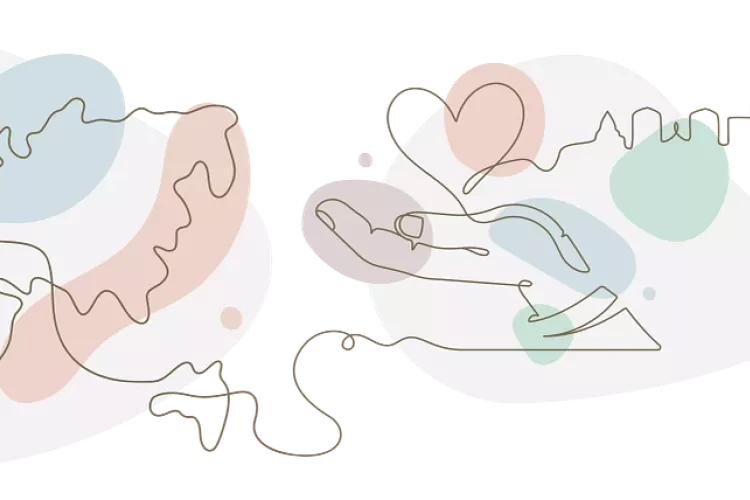Inside the high court
October 2, 2024Brandeis School of Law Assistant Professor Justin Walker will sit down Sept. 15 with U.S. Supreme Court Justice Elena Kagan to talk about her life, career and the inner workings of the high court.
The discussion is part of the law school’s Brandeis Medal celebration. Kagan is the 2016 recipient of the prestigious award.
[caption id="attachment_32597" align="alignleft" width="161"] Justin Walker[/caption]Walker was asked to lead the dinner discussion because he knew Kagan when he was a student at Harvard Law School and she was the dean. He took a class with Kagan and remembers her as a tough instructor who adhered closely to the old fashioned version of the Socratic method.
After Walker graduated from law school in 2009, Kagan recommended him for the two clerkships he received, the first for Judge Brett Kavanaugh of the U.S. Court of Appeals for the D.C. Circuit (2010-11), and the second for her colleague, Justice Anthony Kennedy of the U.S. Supreme Court (2011-12).
“I’m very excited and so honored to lead the question and answer session with Justice Kagan,” said Walker.
Walker teaches legal writing at UofL. He went to Harvard after completing an undergraduate degree from Duke University in political science. In addition to his clerkships for Justice Kennedy and Judge Kavanaugh, he was a Pentagon speechwriter for former Secretary of Defense Donald Rumsfeld. His interests include volunteering as executive director of an educational nonprofit called the Global Game Changers, which teaches elementary-school kids that they can make a difference in the world. He also enjoys visiting Civil War battlefields, watching his 100 favorite movies, and rooting for the Chicago Cubs.
UofL News had the chance to talk to Walker about his experience and his upcoming Q&A session Kagan:
UofL News: How did you first meet Justice Kagan?
Walker: She gave a speech during orientation at law school. She was the dean, and it was clear she was a different kind of dean than Harvard had seen in older days. She talked about a vision of law school that was nothing like “The Paper Chase.” Yes, you work hard. Yes, you are challenged. But you do it without fear of failure. You do it by learning from your classmates, not competing against them. You do it in a way that’s fun, because exploring big ideas should be fun. Even if it’s hard ... Especially if it’s hard!
UofL News: As dean, what did Kagan do to improve students’ experience?
Walker: Well, she was a reformer – a careful but fearless reformer. The first-year curriculum changed in big ways for the first time in about 100 years, with new courses on things that are pretty important to being a lawyer, like legislation and regulation. She also brought in so many new teachers for us that one parody joked there were no professors left to teach at any other law schools. She improved student life in less academic ways, too – a new student center; a renovated gym; a skating rink in the winter. Those last few weren’t too controversial of course, but the new curriculum, the faculty hires, the culture changes – those pivots you can’t make with just a snap of the fingers. They’re more like turning around an aircraft carrier. And she did some of them under fire.
UofL News: It sounds like you admired her a lot.
Walker: I admire her for the battles she picked as dean, and for the way she won them.
UofL News: What was it like to take her class?
Walker: She taught an Administrative Law class at eight o’clock in the morning – so you had to really want to be there, and we did. Her style was Socratic, so she didn’t lecture a lot. She asked questions. Very tough, very probing questions and hypotheticals, not completely unlike how she asks now at oral arguments. But it was fun, because it seemed like she was having fun. I think she wanted to find out whether you could play ball – whether you could think on your feet and see different sides of a question and defend a position and maybe take a hit.
UofL News: When you were clerking for Justice Kennedy, you saw Justice Kagan ask questions at nearly 70 oral arguments. What was she like?
Walker: She has an ingenious way of zeroing in on an advocate’s biggest weakness, and exposing it in a way that’s crystal clear. When I was clerking, her chair was on the side of the bench with Justices Kennedy, Ginsburg, and Alito, and if you were an advocate with weaknesses in your argument, I think that was the side of the bench you needed to worry about the most.
UofL News: How is your teaching affected by what you’ve learned from Justice Kagan?
Walker: Two things. First, as a legal writing teacher, I use her opinions all the time. We read them for their clarity, for their power, and even for their humor. When she wrote about the constitutionality of a police dog sniff, she wrote about when “a sniff is up to snuff.” And when she wrote about the licensing rights for Spiderman, she wrote about “a web of precedents.” Second, big picture, I give my students the same advice she gave us that very first day of law school: Expect to be challenged, but exploring big ideas should be fun.
UofL News: What will you ask Justice Kagan when you interview her at the Brandeis Medal dinner?
Walker: What is your name? What is your quest? What is the air-speed velocity of an unladen swallow? Just kidding.
Related News



